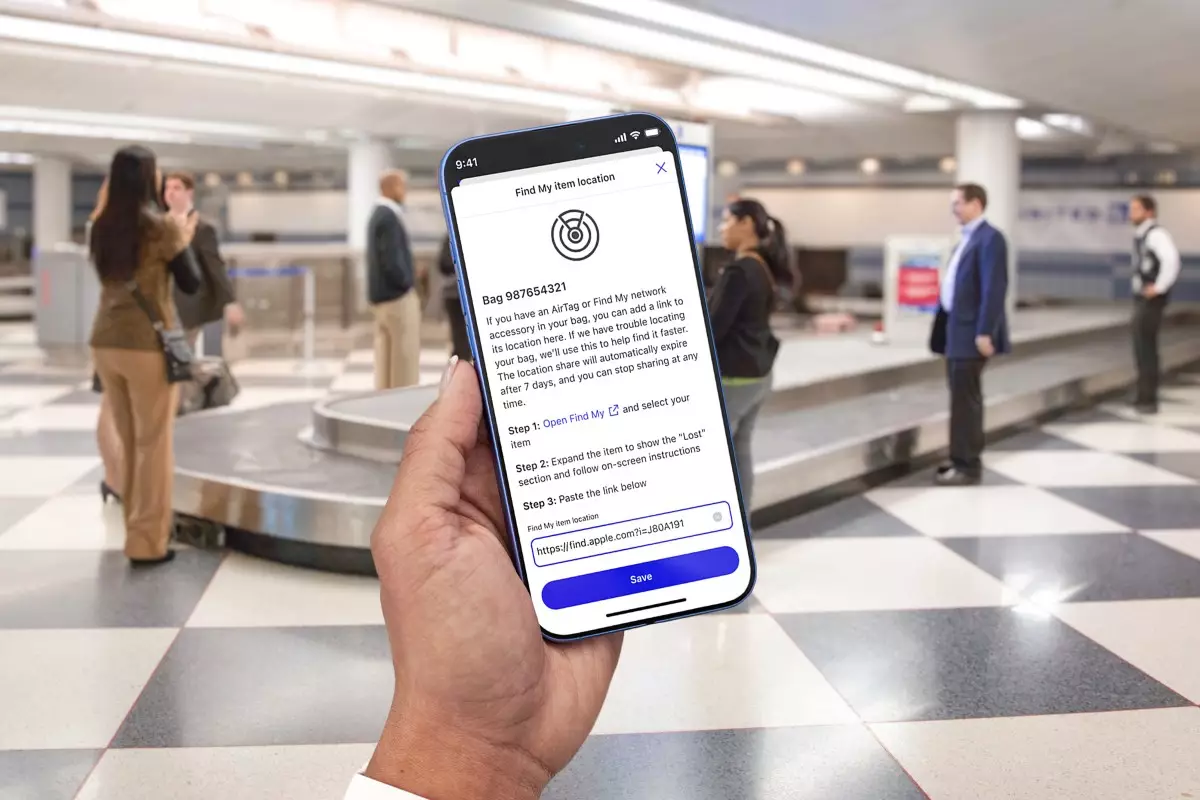Travel has always relied on the smooth operation of various processes, but lost luggage can turn an otherwise enjoyable experience into a frustrating ordeal. With the holiday travel season near, Apple has taken a significant step towards alleviating this common problem by integrating its innovative AirTags with the customer service systems of major airlines. This article delves into how this emerging technology can transform the landscape of travel assistance, focusing on its benefits, security features, and future prospects.
Apple’s new feature, dubbed “Find My Share Item Location,” exemplifies a progressive shift in how both travelers and airlines handle lost items. United Airlines and Air Canada are the first two carriers to embrace this integration, allowing travelers to utilize their AirTags to share real-time updates on lost luggage with airline representatives. Leveraging the existing capabilities of Apple’s Find My app, users can generate a secure link to share the exact location of their lost item, thereby speeding up the recovery process.
This integration comes at a time when travelers often express frustration due to misplaced luggage. Recurring incidents where airlines claim to lack visibility over lost items can be addressed through this new feature. By directly utilizing the data from AirTags, airlines can more effectively resolve such complications, ensuring that misplaced luggage can be tracked and retrieved more efficiently.
One of the most notable advantages of this integration is the enhanced customer experience it promises. Users can generate a Share Item Location link easily from within the Find My app, which can then be sent to airline representatives. This simple yet impactful feature allows for immediate action, rather than relying solely on the airline’s tracking systems, which may sometimes be inaccurate or delayed.
Moreover, Apple has designed this feature with user privacy in mind. The location-sharing process is end-to-end encrypted, ensuring that personal data remains secure. The link also automatically expires after seven days or can be terminated at the discretion of the user once their luggage is returned. This focus on privacy and control helps build trust between consumers and airlines, especially as privacy concerns mount in the digital age.
The integration of AirTags into airline customer service systems isn’t just an enhancement; it essentially supplements the existing luggage tracking solutions that many airlines already offer. While these systems are beneficial, the addition of AirTag data serves as a fail-safe mechanism, particularly in cases where traditional tracking may falter. This dual-layer system can provide both travelers and airlines with a more comprehensive snapshot of luggage whereabouts, minimizing the risk of misunderstanding or miscommunication.
Furthermore, Apple has indicated that this partnership with airlines is only the beginning. With nearly twenty other airlines lined up for integration, the potential for expanded adoption is vast. Such a wide-reaching acceptance of AirTags could set a new industry standard, shifting how lost luggage is managed worldwide.
As we embrace an era where technology plays an ever-increasing role in our daily lives, the travel industry looks to follow suit. The exploration and adoption of smart luggage tracking solutions signify an evolution in the relationship between consumers and service providers. Apple’s initiative could pave the way for more collaborative technological advancements among airlines, possibly leading to improved customer service across the board.
Apple’s AirTag integration with major airlines is a pivotal development in the ongoing struggle against lost luggage. By leveraging technology to empower consumers, Apple is contributing to a more efficient travel experience. With widespread adoption on the horizon, this feature could revolutionize the way we travel, ensuring that lost items are no longer a significant source of stress for passengers. As we move into the future, it’s evident that technology, when thoughtfully implemented, can reshape and refine even the most traditional sectors, like air travel.

